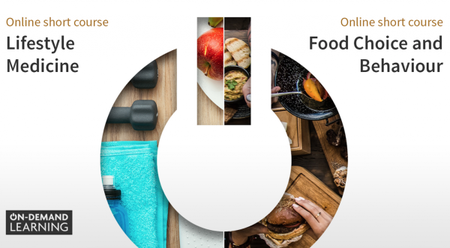Drinking orange juice increases the risk of skin cancer! This is a new headline that emerged across newspapers last month (April 2021), based on a new epidemiological study. Although I have been studying human nutrition for nearly ten years, I am aware that there are many questions to be answered on the relationship between diet and health and I am prepared to be exposed to new findings that may shake our current understanding. However, these regularly surfacing, frightening media alerts make me feel concerned. I am concerned for consumers, as they are being bombarded with conflicting nutrition messages on daily basis in social media: “eating eggs worse than smoking cigarettes!”, “beta-carotene increases lung cancer!”, “alcohol increases breast cancer, but wine promotes longevity!” etc.
Busy readers, perhaps without nutritional background, may feel confused and frustrated, trying to continuously adjust their own lifestyle behaviours according to ever-changing recommendations and news alerts. In the UK, we have government led evidence-based lifestyle recommendations on eating, physical activity, alcohol consumption that aim to keep us up to date with health promotion. Yet, still, our westernised societies suffer the most from non-communicable diseases including obesity, diabetes, cardiovascular disease and cancer. So where did we go wrong?! Well, my thoughts are, perhaps we are making it all too complicated…
While preparing the Lifestyle Medicine course, I was researching the phenomenon of Blue Zones – regions of the world where people live the longest and healthiest lives. These longevity hot-spots are located usually on islands, such as Okinawa in Japan, Sardinia in Italy or Ikaria in Greece, but also in Costa Rica and California, US (community of Seventh-day Adventists). It is not unusual among individuals from Blue Zones to celebrate their 90th birthday, being both physically and mentally fit. Now, I doubt these communities are obsessively following the latest nutrition research, participating in lifestyle interventions at their workplaces or changing their eating habits every few weeks in fear of a new health risk. It appears that what they do contributes towards longevity and quality of life and the difference is - it seems effortless. They eat seasonal, local produce - mainly plant-based, they walk, cycle, work in their gardens. They also find the time for spiritual activities and contemplation (which reduces stress), they prioritise the time with their families and contribute to their local communities. This sounds so easy, so why is it so hard for many of us, myself included?
Since starting my PhD in Human Nutrition my health has deteriorated. Ironically, I was too busy spending long hours at my desk (sedentary behaviour), having no time to cook (convenience foods), and neglecting my sleep and quality time with my family and friends. Having access and understanding of the importance of all these factors we often subconsciously (or consciously) ignore our natural needs and instincts, choosing convenience and chasing our career goals. We justify these behaviours by thinking that ‘everybody else’ lives like this in this fast-paced 21st century – it’s our price to pay. We tend to forget that sometimes less is more, which is perfectly reflected in the Mexican fisherman anecdote.
In our latest nutrition short course, Lifestyle Medicine, participants are given the chance to explore evidence-based recommendations on lifestyle behaviours and learn some useful techniques of how to improve their own lifestyle or lifestyles of others. It will also provide a perspective on latest research with feedback from the experts in each field. But most importantly, it will help participants reflect on how important it is to sometimes switch-off to constant news buzz and trust your gut, because deep down we all know what’s ‘right’.


